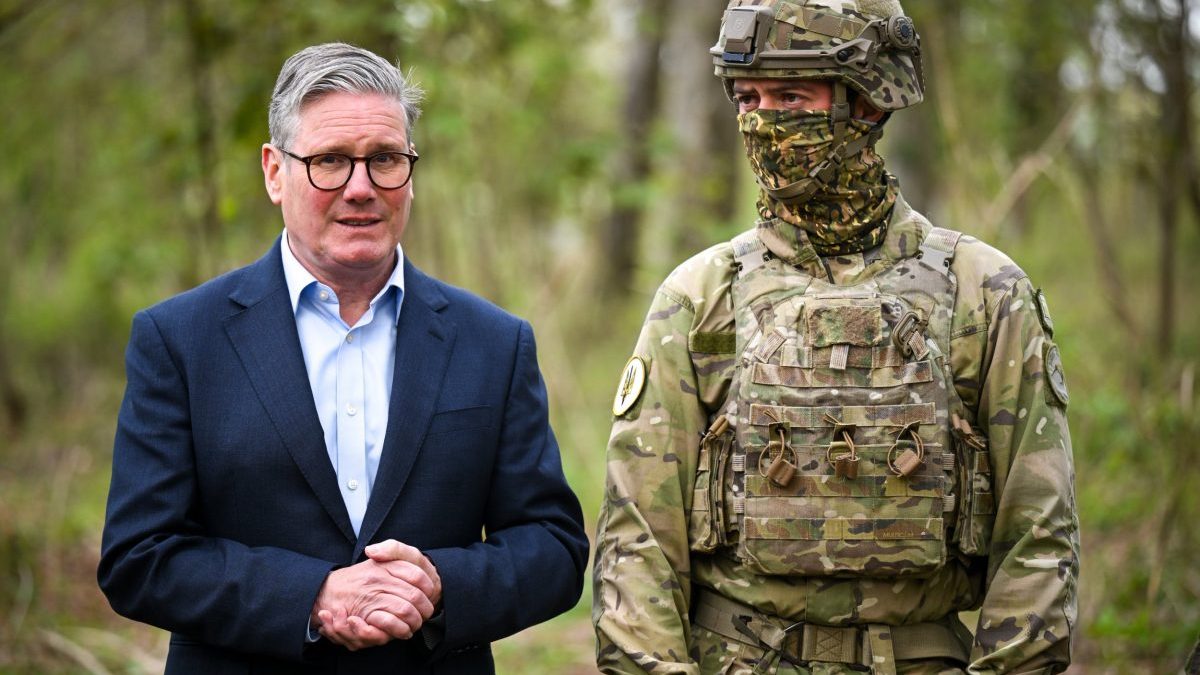Defence Secretary John Healey said plans for the reassurance force were ‘real, substantial and well-developed’
The multinational peacekeeping force deployed in Ukraine would help train that country’s armed forces to prevent a future attack by Russia, Defence Secretary John Healey has said.
Britain and France are leading a group of around 30 nations who have joined the coalition of the willing to put troops on the ground in Ukraine in a so-called “reassurance force”.
Briefing MPs on the latest developments in bringing an end to the war, Healey said plans for the reassurance force were “real, substantial and well-developed” and would have “clear objectives” in Ukraine.
The Defence Secretary told the Commons gave the clearest details yet on what the objectives of the coalition of the willing were.
He said: “First, to secure safe skies, second to secure safe seas, third to support peace on the land and fourth to support the Ukrainian armed forces to become their own strongest possible deterrent against future Russian attacks.
“In the days ahead this detailed planning continues domain by domain.”
While the Russian president has previously voiced criticism of a peacekeeping force led by the coalition of the willing, the prospect of a multinational force training Ukraine troops is likely to harden his opposition.
Thirty one nations have signed up to the coalition, led by the UK and France, which would deter Putin from rearming and attacking Ukraine again in the event of a ceasefire.
These include European and Nato members, although Russia has previously rejected the idea of troops from either Nato or Europe being in Ukraine.
Foreign Secretary David Lammy is to host representatives from the US, Ukraine and Europe at a summit in London on Wednesday, to discuss the latest steps to secure peace between Kyiv and Moscow.
US Secretary of State Marco Rubio had originally planned to attend but the US State Department said on Tuesday that Donald Trump’s Ukraine envoy, General Keith Kellogg, would go instead.
The talks will include “what a ceasefire might look like and how to secure peace in the long term,” Healey said.
The minister also revealed that UK Defence Intelligence have confirmed that “no indication that a ceasefire on the frontline was observed over the Easter period” despite Vladimir Putin’s claim that he had called a “truce” over the weekend.
Healey said: “Despite President Putin’s promise of a 30-hour pause in fighting, I can confirm that defence intelligence have found – and I quote – ‘no indication that a ceasefire on the front line was observed over the Easter period’, and 10,000 missiles and drones have been fired into Ukraine during this year alone, including from the Black Sea.
“So, while Putin has said he declared an Easter truce, he broke it; while Putin says he wants peace, he has rejected a full ceasefire; and while Putin says he wants to put an end to the fighting, he continues to play for time in the negotiations.”
The Russian military “continue to pressure Ukraine on a number of fronts”, Healey said, adding: “I can confirm Russian military progress is slowing. Putin gained less territory in March than he did in February, less territory in February than he did in January.”
The Defence Secretary added: “This war was never just about the fate of one nation. It is about not allowing national borders to be redrawn by force, it is about preventing aggressors across the world from being emboldened to threaten the security of all nations.
“That is why the defence of the UK starts in Ukraine. It is why UK leadership is playing a unique role: to put Ukraine in the strongest possible position on the battlefield and in negotiations, and also to prepare building blocks for a lasting peace that will safeguard Ukraine’s sovereignty and deter Putin from future aggression.”
